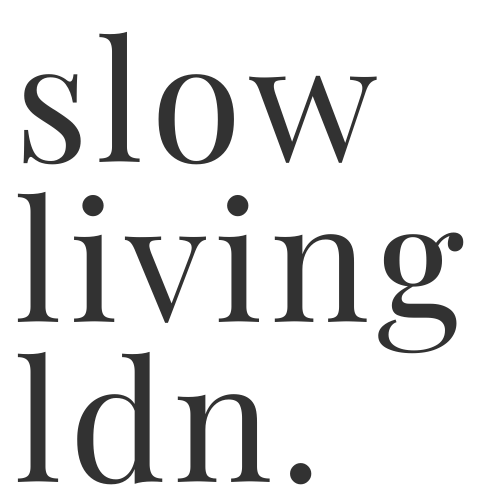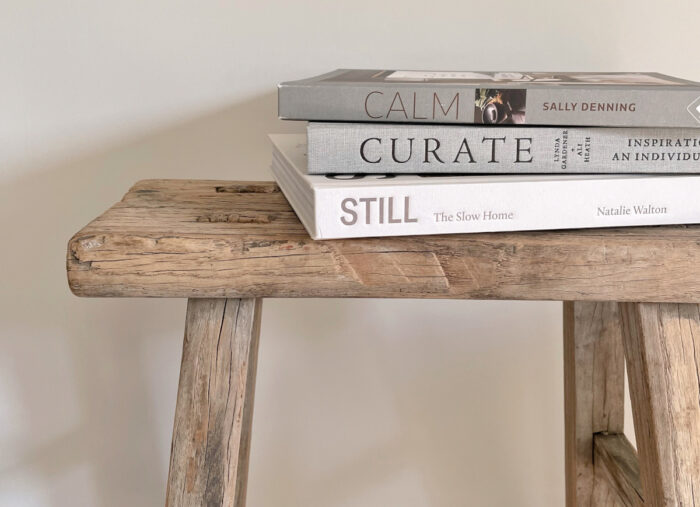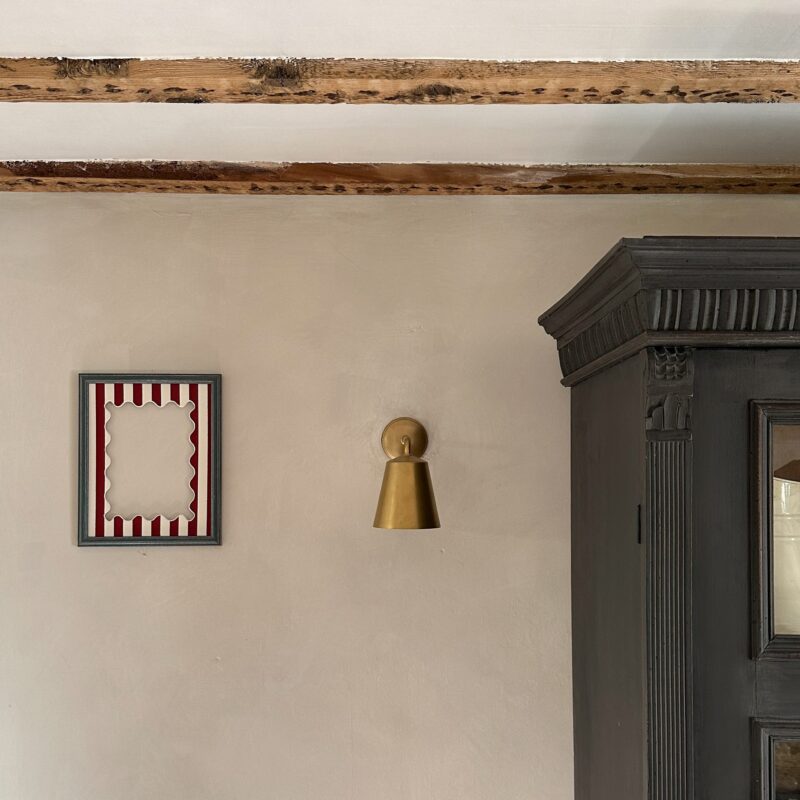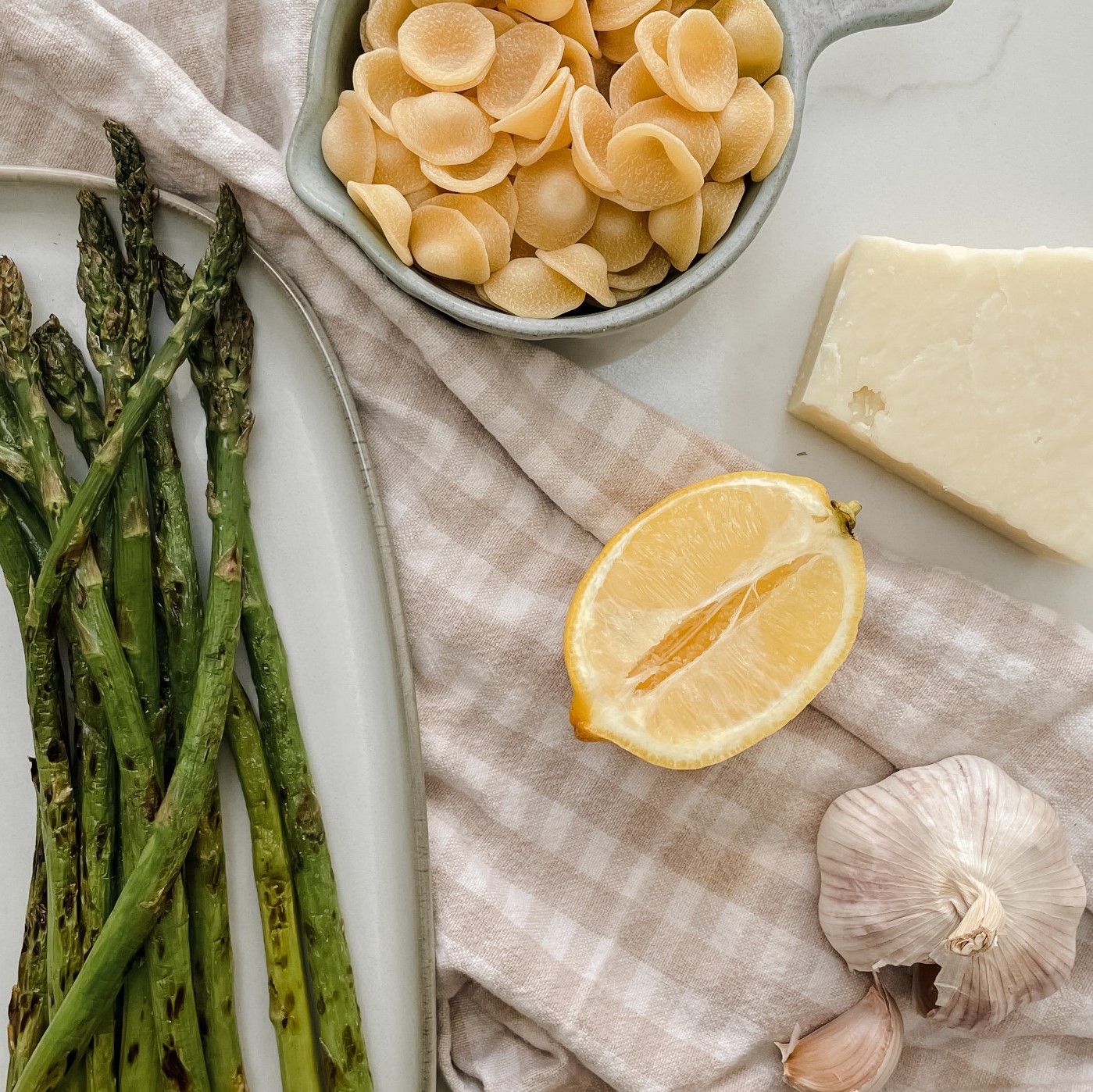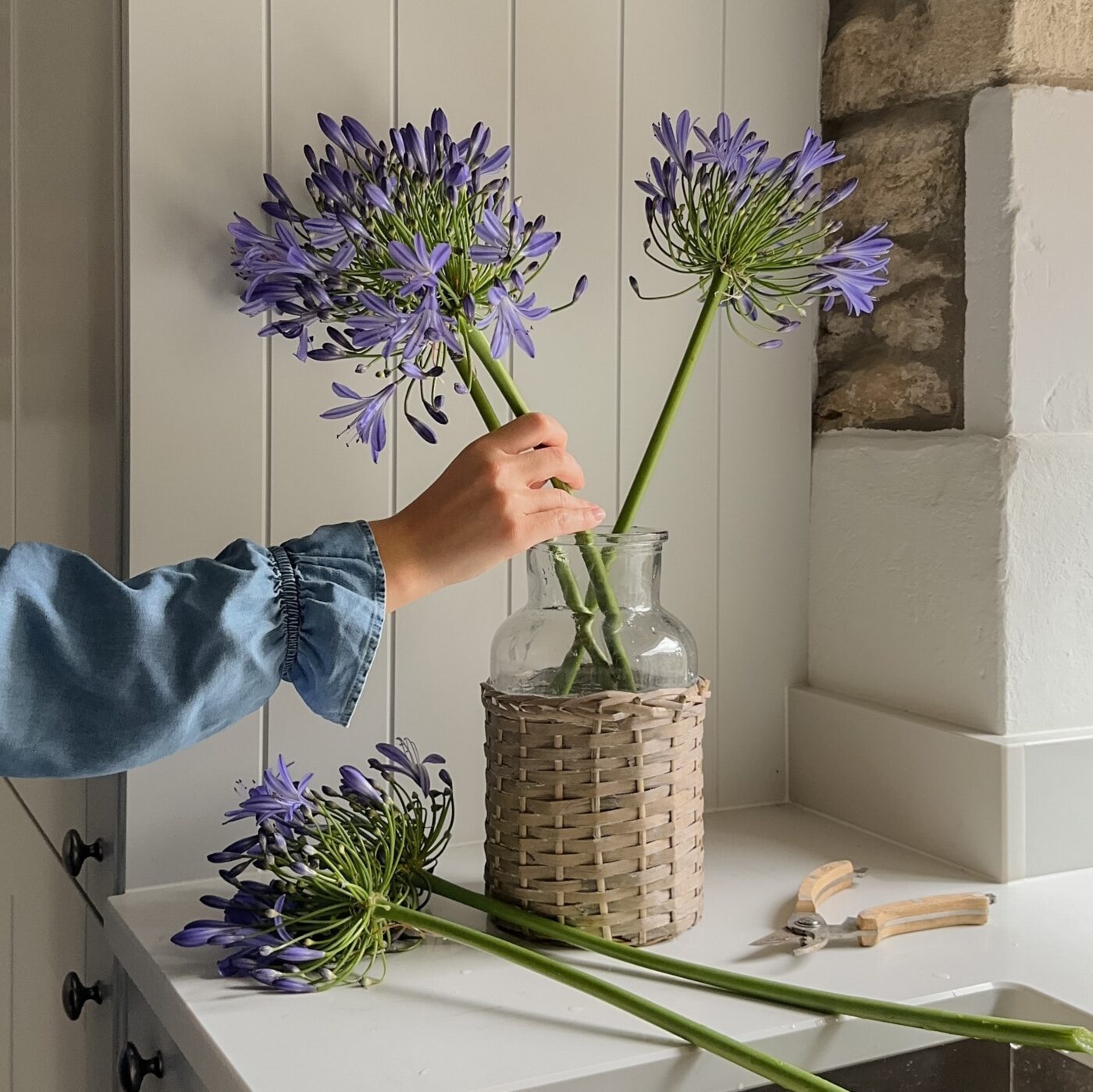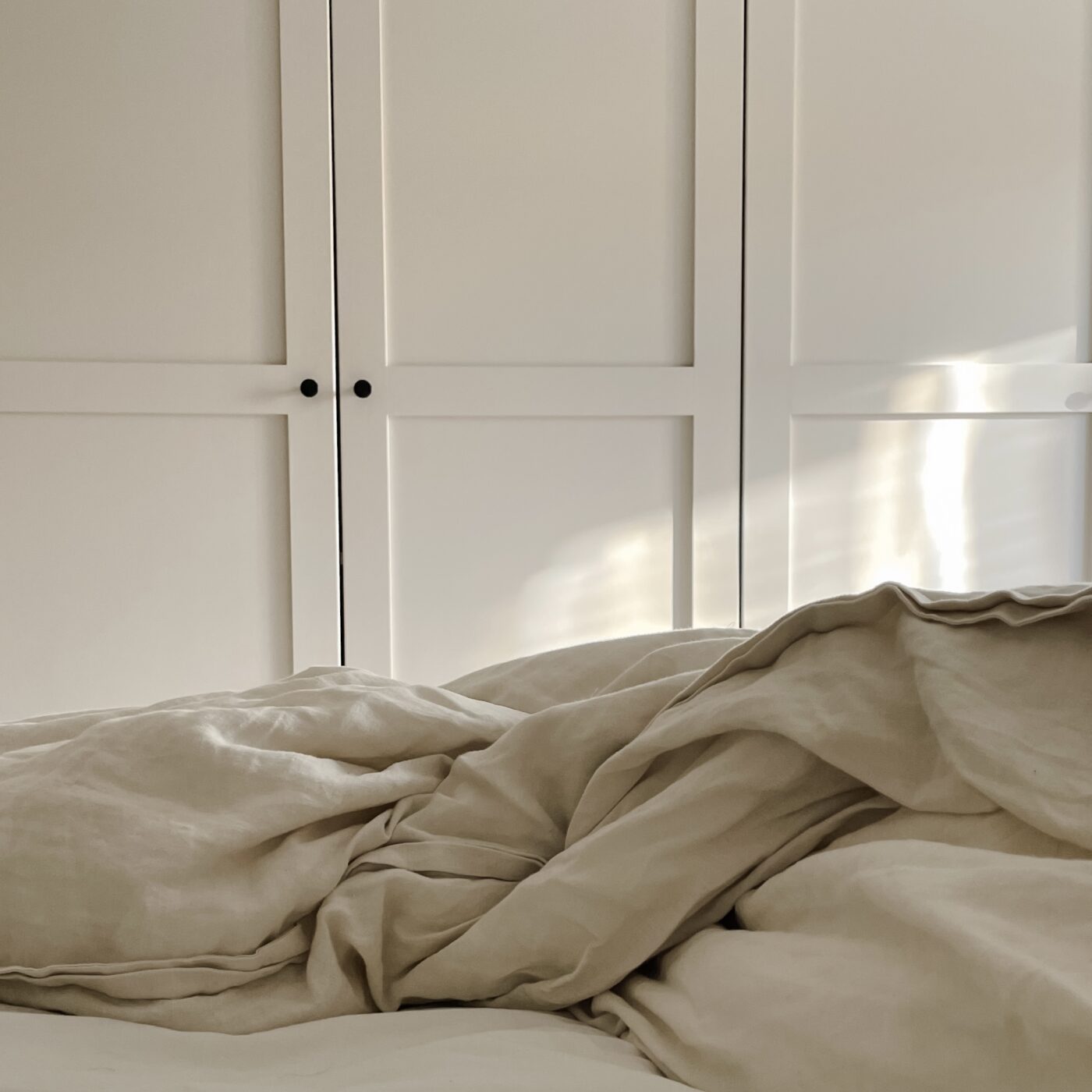You have no items in your cart. Want to get some nice things?
Go shoppingWhat is slow living?
-
Meaning of slow living
Slow living is a mindset whereby you curate a more meaningful and conscious lifestyle that’s in line with what you value most in life.
It means doing everything at the right speed. Instead of striving to do things faster, the slow movement focuses on doing things better. Often, that means slowing down, doing less, and prioritising spending the right amount of time on the things that matter most to you.
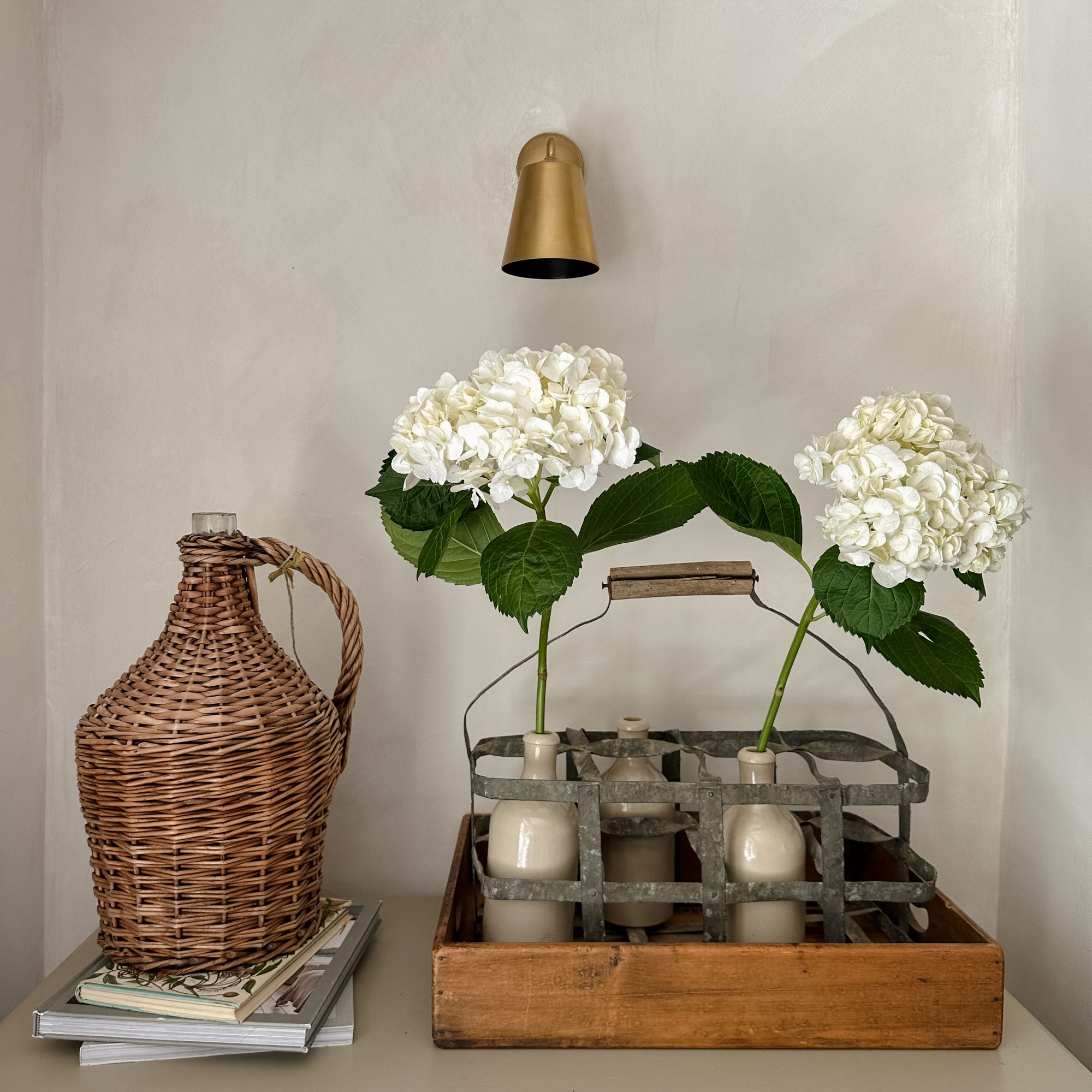
By slowing down and intentionally placing your true values at the heart of your lifestyle, a slow living mindset encourages you to live in self-awareness and make conscious, purposeful decisions for the benefit of your well-being and that of the planet.
Slow living denies that being busy equates to being successful or important. It means being present and in the moment, it celebrates quality over quantity, living with intent, being conscious and considered. To adopt a slower mindset is to switch off autopilot and make space for reflection and self-awareness.
Slow living means living better, not faster.
History of the slow movement
Slow living is part of the wider slow movement which began in the 1980s in Italy. Faced with the opening of a McDonald’s in the heart of Rome, Carlo Petrini and a group of activists formed Slow Food, a movement that defends regional food traditions. The slow food movement now has supporters in over 150 countries and continues to protect gastronomic traditions, promote fair pay for producers, encourage enjoyment of good quality food and engage in activities around sustainability.
Carl Honoré, one of the most well-known authors and speakers on the slow movement, helped bring the concept of slow living into the mainstream in 2004 with the publication of his book In Praise of Slowness. Honoré explores how Slow Food sparked a broader slow living movement with ‘slow’ now being applied to other areas of life which have experienced huge acceleration, including work, parenting and leisure.
Since the book’s publication, the speed at which we live has only continued to increase, but so has the awareness of the slow living movement. Today, slow travel, slow gardening, slow interiors, slow design, slow fashion, slow flowers, slow parenting, slow thinking, slow news and slow working are all examples of further offshoots of the slow living movement. More and more people are acknowledging that faster isn’t always better.
How the slow movement is evolving
Slow living in the pandemic
With more people forced to slow down and simplify their lifestyles, interest in the slow movement increased during the pandemic. In fact, Google reported a 4x increase in the number of YouTube videos with ‘slow living’ in the title in 2020 vs 2019. While some of these clips depict an idyllic rural existence which is far from the reality of most, the increase in this video content demonstrated a desire to reconnect with meaningful hobbies, nature and ourselves. With more time to reflect and an unprecedented, sudden shift to remote working, many reassessed what was truly important to them.
Slow living and the rise of AI and ‘synthetic fast content’
The introduction of tools like ChatGPT is one of the most monumental shifts in our lifestyle since the formation of the internet and the development of the smartphone. The pros and cons of ‘synthetic’ content created by AI is complex, but this new content production is being likened to the fast fashion industry and the rate at which it churns out cheap, synthetic garments. In a dedicated article, we share our early thoughts on AI and ‘synthetic’ fast content. With more content (of varying levels of quality) vying for our attention, will we see a rise in slow content and a more considered, conscious consumption of media?
Slow, considered decision making around whatever we consume, be it content, food or clothing, will become even more important moving forward.
live better, not faster
-
“Slow living is all about creating time and space and energy for the things that matter most to us in life, so ask yourself what you stand to gain.”
Brooke McAlary -
“Be a curator of your life. Slowly cut things out until you’re left only with what you love, with what’s necessary, with what makes you happy.”
Leo Babauta -
“Living ‘Slow’ just means doing everything at the right speed – quickly, slowly, or at whatever pace delivers the best results.”
Carl Honoré -
“Slow living isn’t about determining how little we can live with – it’s about working out what we simply can’t live without.”
Nathan Williams -
"Slowing down is sometimes the best way to speed up."
Mike Vance
-

how to start living slower
start nowWhere do you start with slow living? Our guide takes you through the first steps to a slower lifestyle.
Common misconceptions about slow living
The slow living movement shakes off the negative connotations of the word ‘slow’ which some may liken to sluggish, lazy or unproductive.
Slow living speaker Carl Honoré often mentions the distinction between ‘good slow’ and ‘bad slow’. The difference is that ‘good slow’ is about consciously decelerating to do things at the right speed to achieve a better outcome, whereas ‘bad slow’ may be something out of our hands, such as a long queue or traffic jam. On the flipside, there’s also ‘good fast’ and ‘bad fast’. Speed can be exciting and exhilarating in the right circumstances, but rushing through life, merely skimming the surface, is quite the opposite.
One of the biggest misconceptions of the slow living movement is therefore that it suggests we do everything in a slow gear, moving at a snail’s pace. But, in fact, it’s simply about slowing down to switch off the state of autopilot we often find ourselves in. This gives us the headspace to prioritise what’s important and assign the right right amount of time to each task or activity.
Other common misconceptions include:
Slow living isn’t just for those who live in the country. Slow living is a mindset for everyone, whether your home is in a bustling capital city or a hamlet.
Slow living isn’t at odds with being successful or productive. Rather, it’s about living up to your own idea of success and prioritising what’s most important to you.
Slow living doesn’t mean going tech-free. It means ensuring technology is serving us, not distracting us, and acknowledges the need for screen downtime in the digital age.
And finally, slow living isn’t a quick fix, it’s a mindset shift that takes time and will be constantly in flux as what matters most to you changes. As Brooke McAlary writes in her book SLOW: “This isn’t a race with a start and finish line. This is slow, imperfect, intentional and evolving.”
Benefits of slow living
-
Embracing more time
By cutting out activities that distract you (perhaps social media scrolling) or those that don’t fulfil you, you’ll reclaim time for self-care
-
Experiencing being more present
Slow living means becoming more mindful, managing stress and celebrating the moment
-
Building stronger relationships
Reducing stress, reclaiming your time and living mindfully can help improve your quality time with loved ones
-
Reducing your environmental impact
Slow living and living eco-consciously go hand in hand because when you slow down, you become more aware of the negative impact of our speed-driven lifestyle on the planet
-
Finding fulfilment and purpose
Slow living means placing your values at the heart of your lifestyle, finding a better work-life integration and making time for what’s most important to you, which can lead to a more purpose-led life
-
Seeking a stronger connection with nature
Slowing down can help us reconnect with nature and the pace and pattern of the seasons by embracing seasonal living, slow food and getting outside more regularly
Our shop
At Slow Living LDN. we believe that a home for slow living is a carefully curated collection of spaces where you can be authentically you and find calm and connection.
Visit our lifestyle shop to browse our unique wavy mounts and our framed art collection, featuring vintage illustrations inspired by nature.
Stay tuned! Our new collection is on its way soon.
Slow living resources: podcasts, books, TED Talks and more
There are a number of slow living podcast episodes, TED Talks, books and speakers worth exploring to continue learning about the benefits of slowing down.
Inspiration from Carl Honoré
Carl Honoré is a leading voice on the slow movement and one of the best names to seek out when exploring more about the history and concept of slowing down. The Huffington Post named Honoré “the unofficial godfather of a growing cultural shift toward slowing down” and his popular TED Talk now has over 3.3 million views. Carl Honoré’s slow living journey began when he released he was rushing through his son’s bedtime books and caught himself admiring one which promised one-minute bedtime stories. This was the wake-up call he needed to put on the brakes. Honoré explains the mission from his widely celebrated book, In Praise of Slowness, as “what I really want is for readers to grasp the very counter-cultural idea that the best way to survive and thrive in the fast-paced modern world is not to speed up but to slow down.”
“The great benefit of slowing down is reclaiming the time and tranquility to make meaningful connections–with people, with culture, with work, with nature, with our own bodies and minds”
Carl Honoré, In Praise of Slowness: Challenging the Cult of Speed
- In Praise of Slowness: Challenging the Cult of Speed (book)
- In Praise of Slowness (TED Talk)
- How to make slowness your superpower (podcast episode with WellBeings, also available on Spotify)
- Creating a Slow Home with Carl Honoré (podcast episode with Find The Magic)
- Carl Honoré Talks Technology, Good Slow and Getting to Know Your Butcher (podcast episode with The Slow Home – see below)
Inspiration from Brooke McAlary
Brooke McAlary is a published author and host of the popular podcast The Slow Home, which has more than 300 episodes. After suffering from severe postnatal depression, McAlary began her transition to a slower, more simple way of live in 2011.
“Slow living provides an opportunity to step back, pay attention, and question the ways we use technology, to recalibrate our relationship with the constantly switched-on, logged-in world.”
Brooke McAlary, Slow
- SLOW (book) – read our Slow by Brooke McAlary book summary
- The Slow Home (podcast series)
- What is Slow Living Anyway? (episode 4 from The Slow Home podcast series)
Other sources of slow living inspiration
- Seeking Slow – Melanie Barnes (book)
- The Kinfolk Home – Nathan Williams (book)
- The unforeseen consequences of a fast-paced world – Kathryn Bouskill (TED Talk)
- Zen Habits – Leo Babauta (website)
- Tortoise (slow news website)
- Delayed Gratification (slow news website)
- Still: The Slow Home: Natalie Walton (book)
- Slow Productivity – Cal Newport (book)
While the above names are popular authors and commenters on slow living, they’re far from the only sources of inspiration and knowledge on the slow movement. You can also dive into our own slow living resources and thought pieces. Don’t miss our full list of slow living books and independent slow living magazines.
This page was last updated in August 2023.
Stay in touch
Sign up for slow living inspiration to your inbox
